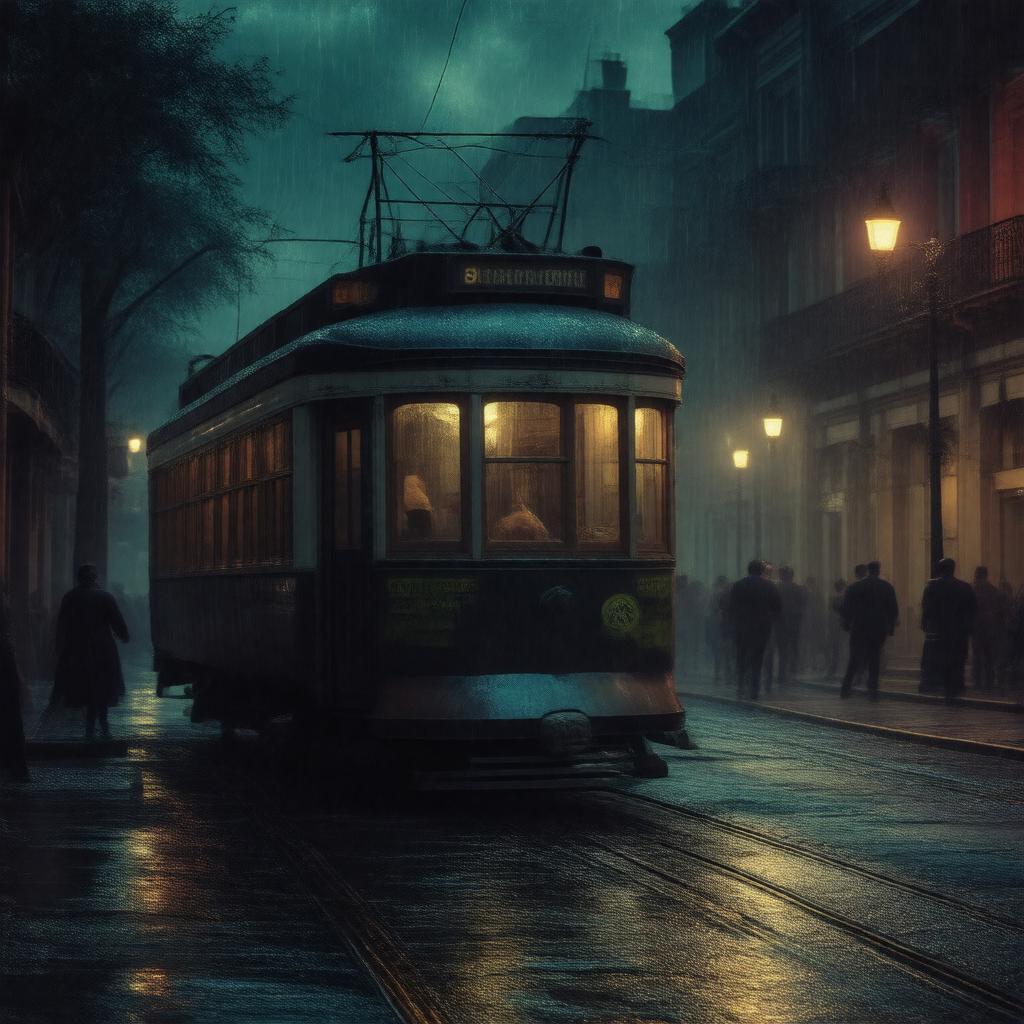Prompt
"Generate an image of a dimly lit, rundown streetcar in New Orleans, with a faint image of Blanche DuBois in the background, conveying a sense of nostalgia and longing, in the style of Film Noir, reflecting the themes of Southern Gothic and Drama."

